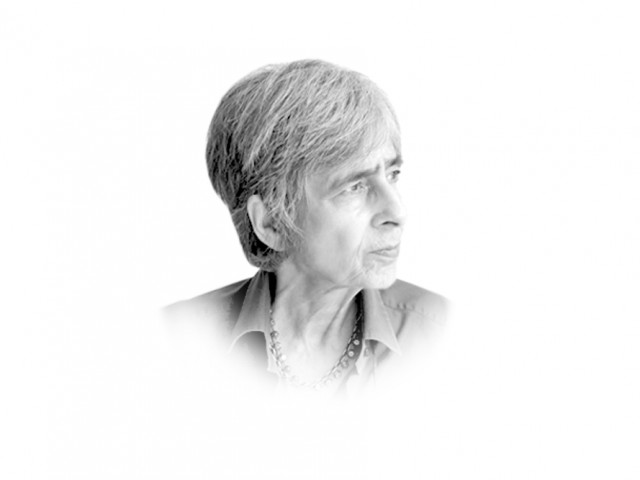Change is needed
Why continue the masquerade of parliamentary system, move instead to the presidential system.

But, and a big but, there is no political party that we know of which has any interest in turning over a worn system that suits only politicians on the make and has never, in 64 years, proven to be of benefit to the nation at large.
Why did Pakistan adopt the parliamentary system? Was it because it was the most obvious thing to do; follow the example of the Raj, which had delivered independence? Was it a lack of imagination, of foresight and prescience or the easiest way out by relying on the Government of India Act of 1935?
Whatever it was, it was not inspired by founder-maker Mohammad Ali Jinnah, who at one point had remarked that he felt that the parliamentary system as in place in the United Kingdom was not suitable to the Pakistani genius or ethos. But this was a remark, he put nothing in writing. Jinnah did a great disservice to the country he left behind by leaving it up to the people to devise their own constitution. He should have at least left a draft constitution upon which his constituent assembly could have worked further in order to complete.
As it was, India managed to come up with a Constitution by 1949, parliamentary indeed, but somehow it has worked over there, rendered devoid as they were of any feudal structure or mindset. For Pakistan, imbued and cursed with feudalism and a feudal mindset, by 1949, it had only managed to come up with the destructive and obscurantist Objectives Resolution; a curse to the country which persists. It was not until 1956 that the genius of Pakistan could form a constitution, dead after two years, another short-lived in 1964, and the third,the present one, mangled and mutilated by — in short — bad, if not wicked, amendments.
The parliamentary system has never worked. It has been fraudulent. Out of 17 prime ministers — two of them with two terms each — interspersed with periods when the post was abolished or filled by caretakers, only two have actually been prime ministers. The rest have been subject to the whims of a head of state or the military. Liaquat Ali Khan was his own man and Zulfikar Ali Bhutto was very much the top dog, successfully emasculating his appointed president.
The history of the parliamentary system has been that of a one-man rule, passed on from hand to hand, normally to a head of state as is the fact now. The prime minister is irrelevant, it matters not a whit who he is, subservient as he is to party chief or head of state. So why continue the masquerade as it is doubtful that things will change, the political mindset being what it is. So move over to a presidential system, de jure as opposed to de facto. The president, of course, will be directly elected by the people — not put in place by a couple of tanks or by waving a piece of paper in the air and then being elected by a bunch of people either in thrall to the candidate, or hoping to make a quick buck or primed by the ‘agencies’.
We need a system whereby ministers are not appointed from the legislature, thus obviating a form of blackmail and a goodly amount of corruption with unsuitable, incapable and crooked, or worse, candidates — enough of having ministers who believe that burying women alive is in keeping with valid traditions — of those owed favours or those who it is hoped will render favours.
Along with this goes the voting system, in dire need of reform to obviate traditional unlawful practices — the Asghar Khan case being illustrative.
The major problem: Who will have the guts and nous to rock the perforated boat and when?
Published in The Express Tribune, September 15th, 2012.














COMMENTS
Comments are moderated and generally will be posted if they are on-topic and not abusive.
For more information, please see our Comments FAQ